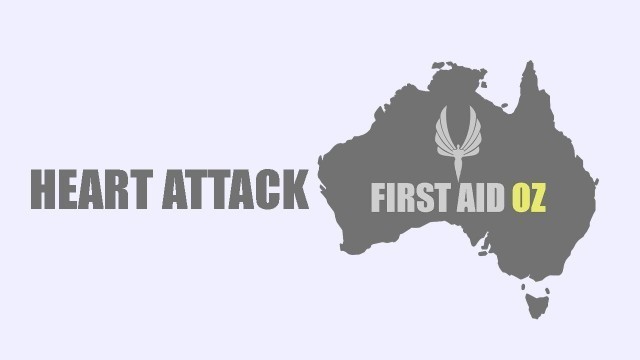

'Get First Aid training with First Aid Oz to Recognize the sign and symptoms of a Heart Attack, and know what to do in a life threatening medical emergency. Check out our website: : https://www.firstaidoz.com.au/ What are the symptoms of heart attack? Chest pain or discomfort. ... Feeling weak, light-headed, or faint. ... Pain or discomfort in the jaw, neck, or back. Pain or discomfort in one or both arms or shoulders. Shortness of breath Call triple zero (000) immediately if you or someone else may be having a heart attack. Chew 300mg aspirin, unless you have an allergy to aspirin, or your doctor has told you not to take it Warning signs for heart attack differ from person to person and no two heart attacks are the same. Knowing the warning signs of heart attack and acting quickly can reduce the damage to your heart muscle and increase your chance of survival. To perform its duties, the heart muscle needs a generous supply of oxygen and nutrients, which it receives from blood pumped through the coronary arteries and their branches. A heart attack occurs when a blood clot blocks one or more of the arteries that supply blood to the heart muscle. The medical term for a heart attack is acute myocardial infarction (AMI). The most common underlying cause of a heart attack is coronary artery disease (CAD). CAD occurs when fatty deposits (called plaque or atheroma) slowly build up on the inner wall of the coronary arteries and cause the arteries to become narrow. If a blood clot forms in a narrowed artery and completely blocks the blood supply to a part of your heart, it will cause a heart attack. The severity of the heart attack depends on how much heart muscle is permanently damaged. A heart attack occurs when the blood supply to the heart is blocked and your heart muscle can’t get enough oxygen. A common symptom of a heart attack is chest pain that may spread to your arms, neck, jaw or back. Heart attacks are mostly caused by coronary heart disease which starves your heart of oxygen. You can reduce your risk of having a heart attack by adopting healthy lifestyle habits. First Aid Oz delivers Nationally Recognized First Aid courses and CPR refresher training across Australia to individuals and industry groups. Has your First Aid Certificate or CPR certificate expired or do you need First Aid for work or insurance ? We can come to your workplace, school or sporting club, or you can come to one of our regularly scheduled classes. Units we deliver include: HLTAID011 Provide First Aid HLTAID014 Provide Advanced First Aid HLTAID009 Provide Cardiopulmonary Resuscitation HLTAID012 Provide First Aid in an education and care setting PUAOPE010 Operate an Automated External Defibrillator in an emergency Our courses are delivered using a combination of online resources, including theory booklet, instructional videos and face to face training and assessment. Students can complete all theory tasks in their own time and study from home or work.'
Tags: Heart Disease , heart attack , cpr training , heart attack symptoms , CPR , first aid training , first aid , Cardiopulmonary resuscitation , how to do CPR , first aid courses , chest compressions , How To Perform CPR , cpr refresher , first aid certification , angina , CPR certification , first aid course , cpr course , performing cpr , defibrilation , mouth to mouth resuscitation
See also:

















comments